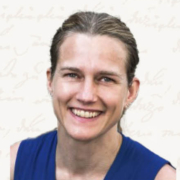Anna Falk will speak at the Scheele symposium
2023-06-29
Get a glimpse of the research that you will get the opportunity to learn more about at the Scheele symposium! The Scheele laureate Professor Peter G. Schultz is one of the pioneers in the field of chemical and synthetic biology and during the summer we will introduce the guest speakers who are all active in related fields. One of them is Professor Anna Falk from Lund University:
How does your research relate to Prof. Shultz’s scientific work?
– I am a Molecular biologist, and my group works with methods that Prof Shultz has pioneered, e.g. techniques such as the use of antibodies to activate or block cell signaling. We have a similar interest in developing future advance therapies for human disease.
Can you explain your research’s potential applications and impact on drug discovery/drug development?
– My group develops cell therapies for disorders of the brain where induced pluripotent stem (iPS) cells are the starting material for creating off-the-shelf cell therapy products.
How has your research contributed to the benefit of patients?
– We work both with creating advanced cellular models of the human brain to study neurodevelopment and neuropsychiatric disorders where we have identified potential drug targets. Furthermore, we are developing novel iPSC-derived cell therapy products.
What are some recent breakthroughs or discoveries that will advance in your field?
– Cell therapy, which are advanced therapies (ATMP), created from iPS cells have the potential to revolutionize how we treat patients in the future. iPS cells are an unlimited starting material for any therapeutic cell therapy product. Off-the-shelf doses of cell therapy products could be used to replace or refine cells that have died or been injured in the patients, and, for some diseases, these cell therapies have the potential to cure currently incurable diseases. For example, Diabetes, Cancer, Heart failure, and Parkinson’s Disease.
Cell therapies are currently in an early development phase where the first clinical trials have just started. Researchers globally are eagerly awaiting the results. My research group is working on developing these ATMPs for diseases or injuries in the central nervous system, for example, in the Vinnova project IndiCell, that I lead. Furthermore, I will lead Lund University’s ATMP center, which is in the start-up phase.
What advice would you give to aspiring researchers interested in pursuing a career in chemical biology, and how can they contribute?
– Follow the joy! It is tricky to dedicate so much time, energy and mental force intomy work if I am not doing what I really think is fun and rewording. If I don’t follow the joy I would not be able to execute and deliver good work. For me the fun and joy is an eventual part of my work.